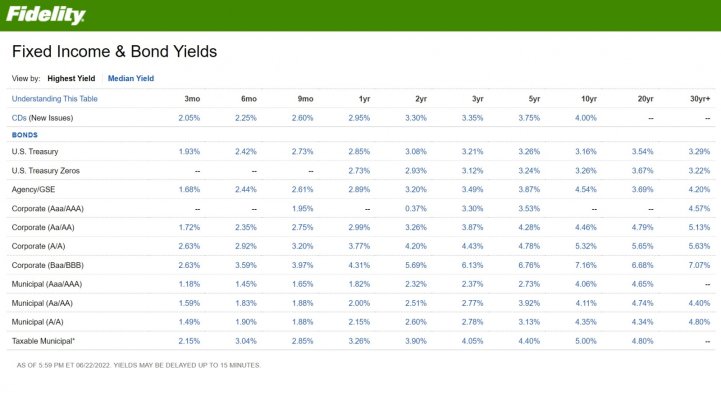mathjak107
Give me a museum and I'll fill it. (Picasso) Give me a forum ...
- Joined
- Jul 27, 2005
- Messages
- 6,206
I own FFRHX. Seven Figures. Junk bonds of short duration.
True the principle goes down as rates go up. However, the interest earned monthly rises as rates go up offsetting, somewhat, the drop in principle.
So last year I was earning 3k monthly. Recently as rates rose I have been earning 4k monthly.
I reinvest the dividends and when the Federal Reserve starts to cut rates the principle will once again rise as the income starts to fall.
Works for me.
Normally the funds duration value guides you as to how long it will take to make back what you are down when rates rise .
The duration value gets you back to the original deal you had the day you bought in .
It is really not much different then waiting for the maturity of an individual bond or selling early and taking a loss .
However with high yield there is also credit risk effecting things so duration value does not work the same way ….it is kind of unknown how long



 If I bought and sold during periods of market volatility like this, I'd be broke by now.
If I bought and sold during periods of market volatility like this, I'd be broke by now.